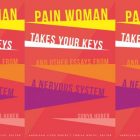Indigenous Taiwanese Lit: From One Island Comes Global History
The deeper you go into reading indigenous literature the greater your understanding of the human condition. Such is the case with Indigenous Writers of Taiwan: An Anthology of Stories, Essays and Poems. In these contemporary and compelling pieces we see beyond skin color, religion, and geographic location by placing Taiwan at the center of our literary map.
Taiwan has nine indigenous tribes divided into eight mountain groups and one non-mountain group, we learn from translator John Balcom. Balcom, who co-edited the anthology with Yingtsih Balcom for Columbia University Press’s Modern Chinese Literature from Taiwan series, explains that their populations range from 4200 to 122,800 and they occupied Taiwan as far back as fifteen thousand years ago. As we progress into the book and discover similarities and differences among the tribes, we find work that ranges from the personal to the universal and contains truths that parallel myths and legends. We find ourselves pondering our own Natives while discovering how the Han Chinese, the Japanese, and Western imperialism have molded Taiwan.
Consider nonfiction writer Pa’Labang from the Puyuma tribe. He speaks a smattering of other languages and studied in the West. In his essay “The Mother of History” he discusses his thirst for tribal history and his mother who slakes it by telling him about how Catholicism came to her 1950s village. Pa’Labang’s great-uncle, chiefly responsible for its occurrence, “felt Catholicism would bring modernization to the tribe.” The author’s mother, however, had a sneaking suspicion the church would disrespect the tribe’s customs and traditions. The church declined in popularity in the end, though the mother’s actions prove a surprising twist of fate. Rather than weighing the story down in moroseness, Pa’Labang ends on an uplifting note that likely continues in his indigenous culture magazine and his work with indigenous institutes:
Unless we have the courage to forget, like all indigenous people, we will never be able to come together and create our own history on this land. Perhaps the indigenous people will one day be the mother of Taiwan’s history.
The memoir “Wooden Clogs,” Paiz Mukunana’s allegory of environmental and capitalistic concerns, gives a glimpse into Taiwanese history involving the Japanese. An aural image of a woman walking in Japanese clogs, no longer common in contemporary Taiwan, releases a flood of memories about the Japanese, who scarred the land by building roads during their occupation, then unnamed foreigners who further raped the land of natural resources needed to produce those clogs. (The theme of cultivating the earth rather than denuding it runs through indigenous literature from many cultures.) It’s budu trees she really misses:
The end of spring and beginning of summer marks the season when the budu trees put forth their white blossoms. The mountain is a gorgeous sea of white. And when you stand on the mountain ridge to the right, and a gentle breeze blows up through Zhujiao Valley, the white flowers covering the mountain move in wave after wave.
When they had clear-cut the field and left, another group came to do the same to the bamboo. They too would make wooden clogs, those “suitable to be worn only by city dwellers on the flatlands.” There is a happy ending though. One that shows you don’t need political motive to practice sustainability.
From the tender, substantive voices of the essayists let’s move to Monaneng’s power-packed poetry. Blinded in an accident at the age of twenty, the poet lives in Taipei and published his first book in 1989, shortly after martial law was lifted, marking Taiwan’s first book of indigenous poetry published in Chinese. With lines like these in “If You’re an Aborigine” he creates a multiplicity of meanings:
If you’re an aborigine
then wipe away your tears and blood
and, like a huge burning tree, light the road ahead.
These words are not just for Taiwan’s indigenous tribes. Others in the margins will get it too. His words may serve as a superficial allusion to oppression, but there’s more.
If you’re an aborigine
then when fate leaves you no way out
do the only thing you can:
fight with your back to the mountain.
As his poem continues, and with every repeat reading, we see the mirrors we as readers bring to the words.
Next comes Kowan Talall’s short story “Tears of a Fledgling,” a Bildungsroman in which a young man edging into manhood develops courage by talking to what might be ghosts/spirits. Badai’s tale “Ginger Road” takes capitalists on a few dynamic turns through self-sufficiency and bartering, family and filial duties, agrarianism and financial values.
To instantly gratify your need to read some indigenous Taiwanese literature, there’s Auvini Kadresengan’s “Song of the Wild Lilies.” This novel excerpt was translated by Terence Russell and published in Asymptote.



